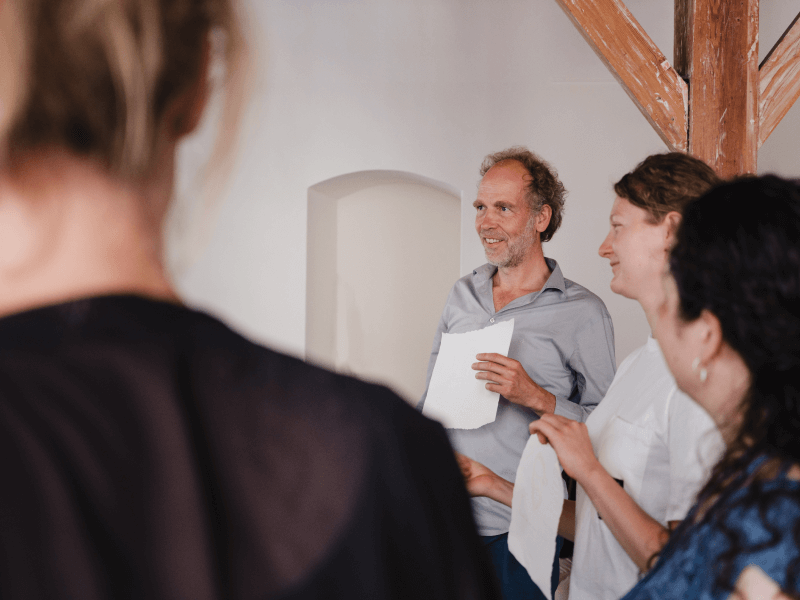Learn to Creatively Care at the Arts in Health Summer School
The Aletta Jacobs School of Public Health is organizing a summer school on Arts in Health from the 17th to 21st of June. Nowadays, because of the complexity of treatment and care, the work of doctors and nurses is becoming an increasingly technical process where compassion is pushed to the background, instead of a process in which doctors and patients search for a solution together. Healthcare needs to become more human again, according to Ferdinand Lewis, head of science & education at Arts in Health Netherlands, and art has a big role to play in that humanization.
Using art in healthcare
The term for supporting care with the arts is ’arts in health’. Lewis has seen almost all art forms used in care, from rap to painting to poetry. "I just haven't seen tap dancing yet," he reveals. "But I've seen a brass quartet in a hospital, I don't see why tap dancing couldn't also be done."
Art is not a substitute for treatment, but a way to support care, according to Lewis. When it comes to art therapy, the therapist has a clear idea about the health outcome of the therapy. A ‘participatory artist’, on the other hand, does not predict the outcome of a creative experience, but is there to support wellbeing and to humanize the care experience.
According to research, being creative can be the start of all kinds of healthy outcomes. It starts with a patient's decision to be creative, to ‘step into their imagination’ as Lewis says. Well-being doesn't come from the art itself, but from the patient being empowered to pay attention to their well-being. "The act of creativity is in itself good for you, plus, simply being creative can lower the threshold to social engagement, or focusing on your own well-being, and other healthy behaviors. Of course, it’s also just a lot of fun,” Lewis says.
The Arts in Health summer school
Lewis is looking forward to the summer school and emphasizes that anyone with an interest in research, training or practice of arts in health is welcome. For example, artists who want to learn how to use their craft to provide care; medical professionals who want to add art to the way in which they provide care; students with an interest in the subject; researchers looking for an area of research; or teachers who want to learn or teach about arts in health.
Those without a knack for the arts are also welcome to attend the summer school. During the mornings, students will be introduced to the theory and broad perspectives behind arts in health, to get a clear picture of how the field fits into healthcare, society and science. During the afternoons, there are hands-on workshops where students will experience arts in health in all its forms, including dance, visual art, writing, and others. According to Lewis, these workshops are very important. "You can spend your whole life writing about arts in health but you can’t actually know what the experience is like until you have tried it," he says.
The workshops during the arts in health summer school are not the same as a typical arts class in dance, writing, or drawing for example. In a regular writing class, you learn to create something, the main focus is on the product. With arts in health, it is not so much about the artist’s output, but creating a safe environment where participants can support their own well-being through creating art. "We teach people to help other people do this. Our vision is that people will eventually be able to do this all over the Netherlands." Says Lewis.
| Last modified: | 12 September 2024 11.21 a.m. |
More news
-
24 March 2025
UG 28th in World's Most International Universities 2025 rankings
The University of Groningen has been ranked 28th in the World's Most International Universities 2025 by Times Higher Education. With this, the UG leaves behind institutions such as MIT and Harvard. The 28th place marks an increase of five places: in...
-
05 March 2025
Women in Science
The UG celebrates International Women’s Day with a special photo series: Women in Science.
-
16 December 2024
Jouke de Vries: ‘The University will have to be flexible’
2024 was a festive year for the University of Groningen. In this podcast, Jouke de Vries, the chair of the Executive Board, looks back.



